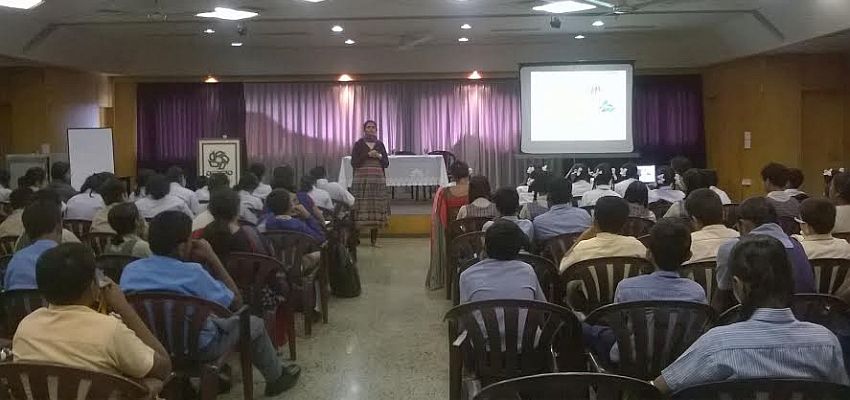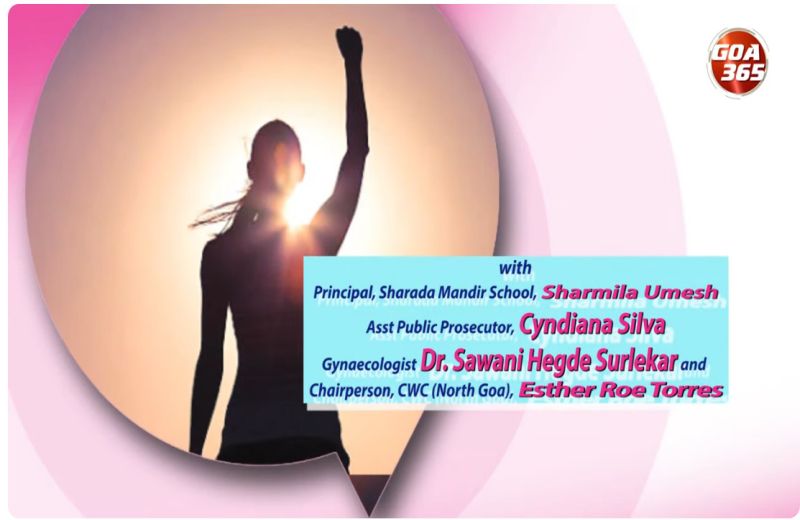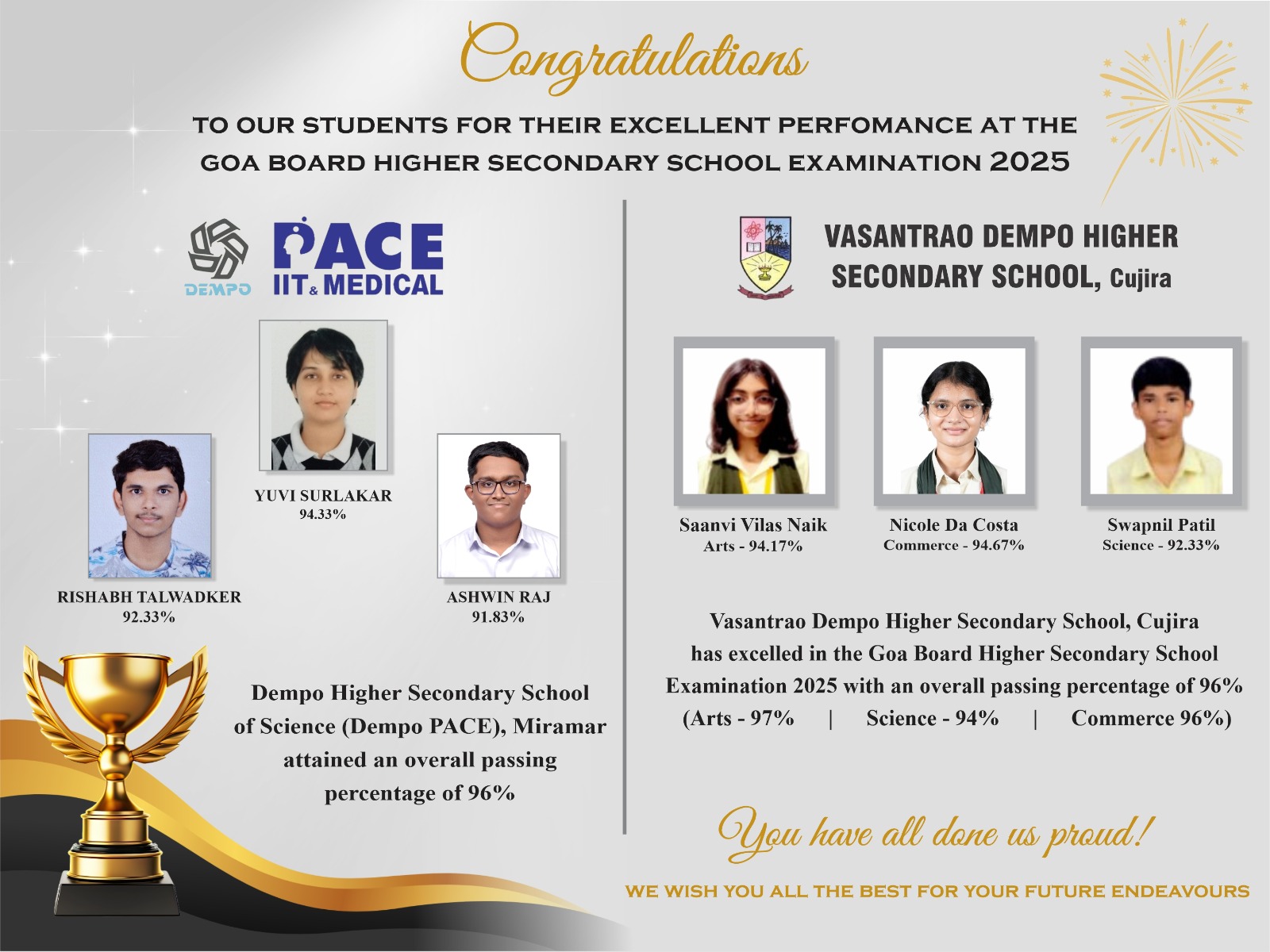
To track sustainability, i.e. measure and monitor progress in terms of resource consumption and conservation, schools need to conduct ‘audits’ related to energy, water and waste in order to take necessary actions so as to reduce their environmental footprints. In order to train schools to conduct environmental audits, a workshop was organised on September 9, 2014 at Dempo House, Panaji, Goa with the following objectives:
- To reiterate the goals of project STARS and how ‘environmental audits’ are an integral part of it.
- To train students and teachers to carry out environmental audits in the area of energy, water and waste
A total of 95 participants (87 students and 8 teachers) attended the workshop from the 9 project schools.
Session: Introduction to the workshop
Ms. Shabana Kazi (Research Associate, EYSD, TERI) presented the objectives of Project STARS and highlighted the importance of the workshop. She urged teachers and students to learn the various audit procedures and then conduct the same in their schools so as to monitor and track the resource consumption in their schools. She explained that once this information is available, students and teachers will be in a position to understand what remedial measures need to be adopted to reduce consumption and take the necessary action. Subsequent audits will then be able to ascertain how effective the actions have been in plugging the gaps at the school.
Energy Audit
The session on energy audit was carried out by Ms. Avanti Roy Basu (Fellow and Area Convenor, EYSD, TERI). Ms. Basu explained the term audit and how students could measure the consumption of energy in their schools. The audit covered various aspects such as; how to check visual and thermal comfort for spaces, how to calculate the lighting requirement in a room, assessing the energy efficiency in terms of lighting power density, annual energy consumption (kWh/yr) etc. She also provided potential energy saving options whilst discussing the star rating for various electronic appliances along with the concept of green buildings/schools.
Water Audit and Water Quality Testing
Mr. Ayyan Karmakar, (Research Associate, Water Resources Division, TERI, Bangalore) conducted the next session on water auditing. The significance and purpose of water audits in terms of assessing a system’s water consumption so as to make it more efficient was explained to the students. The various types of water audits such as household, commercial and industrial were flagged. This session provided step by step guidelines in terms of forming a team, acquiring the right tools and equipment, and general knowhow of the procedure to be followed to conduct a water audit. Measuring and calculating the amount of water consumed was physically demonstrated using a water canister, beakers and a stopwatch. Students and teachers were also trained to calculate the per capita consumption of water in the school and how this would help in tracking the impact of the ‘actions’ students and teachers would take to reduce their water consumption. Calculation of the total water flow, how to identify the losses and calculate the amount of water lost so as to suggest solutions was emphasized upon. Schools were also shown to test their water quality for physical, chemical and biological parameters using parameters like colour, odour, taste, turbidity, pH Value, total Hardness, iron, chlorides & residue free chlorine.
Waste Audit
Ms. Shabana Kazi (Research Associate, EYSD, TERI) took up the session on conducting a waste audit. She explained that a school waste audit is a structured process used to quantify the amount and types of waste being generated in school (municipal and paper and office waste). She explained that the main purpose of conducting a waste audit in school is to enable the school to become a zero waste zone in the long run, and hence steer the school towards becoming a model sustainable school. A step by step guideline was provided to the students in terms of determining the composition and quantities of waste being generated in school. How to calculate the per capita waste generation in the school was shared along with the comparable benchmarks. She then went on to get students and teachers to think about measuring the effectiveness of the school’s existing waste management system so as to identify opportunities for improving the same by drawing up the necessary strategies.
Waste paper audit and demonstration
Ms. Saltanat Kazi, (Consultant, EYSD, TERI) conducted the session on waste paper audit that was followed with a demonstration of the same. Ms. Saltanat explained that a waste paper audit is a tool to quantify the amount of paper waste generated in school while simultaneously map and link the quantity of waste paper generated with the source. This exercise was important as it would then provide pointers to where effective remedial measures need to be incorporated. Waste paper categorisation and how to quantify the same was presented to the students along with calculating the per day waste paper generation, tabulation and analysis of the same was discussed. Students had been instructed to bring in different types of waste paper so as to enable a demonstration and hands on exposure to the procedure.
Summarising and way forward
Ms. Shabana Kazi, summarized the workshop proceedings and urged students and teachers to conduct follow up audits with the help of the core team formed at each of their schools.



